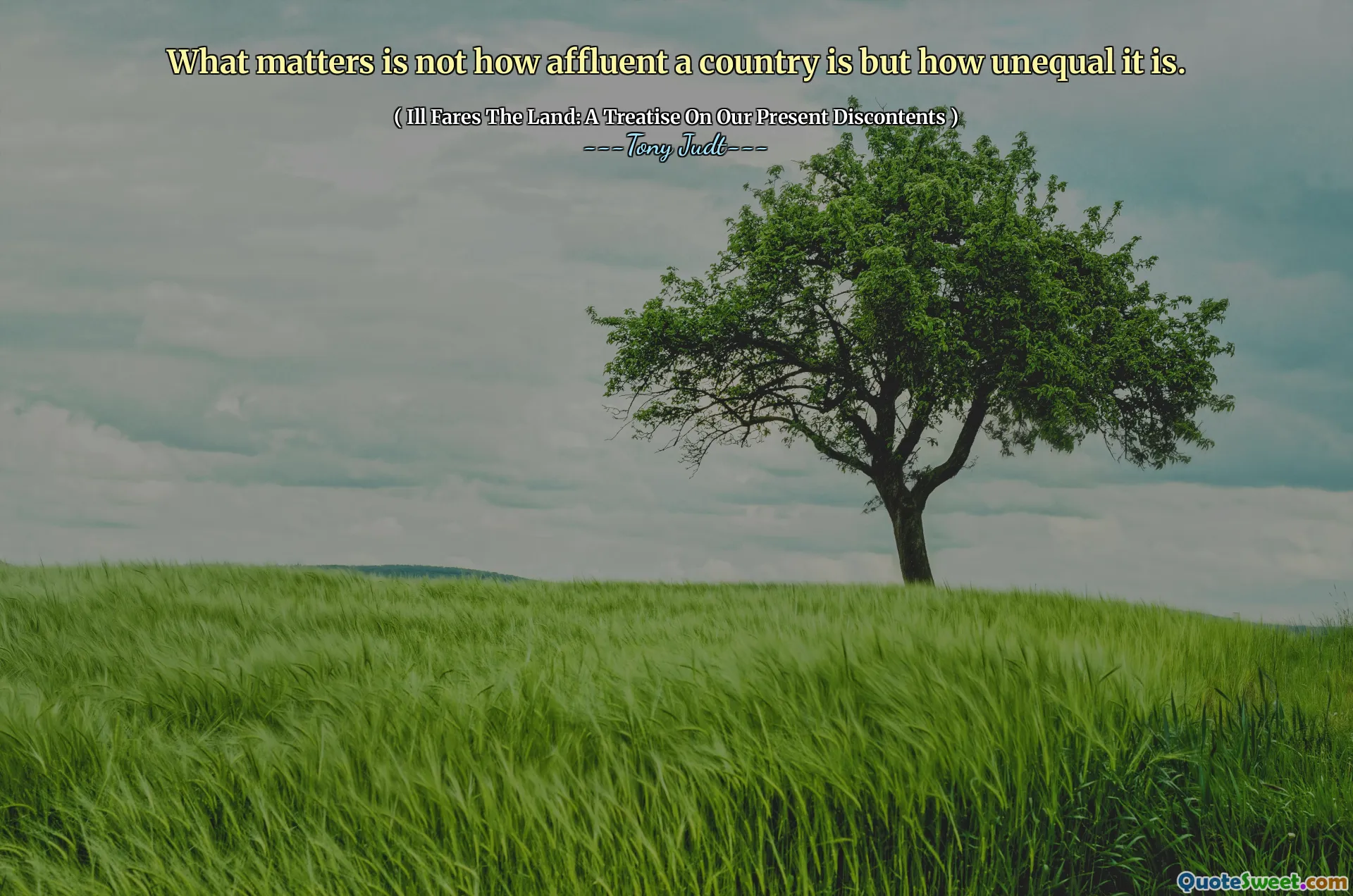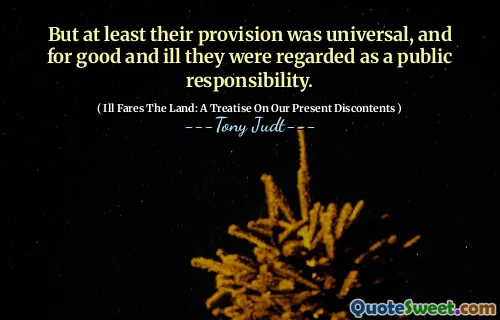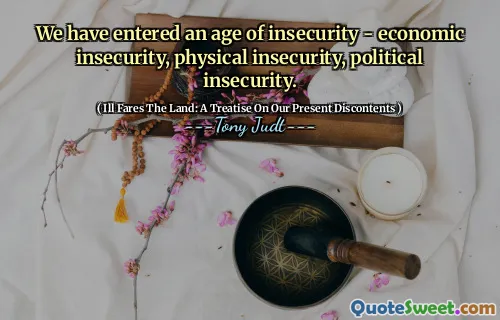
What matters is not how affluent a country is but how unequal it is.
This quote, from Tony Judt's Ill Fares The Land: A Treatise On Our Present Discontents, eloquently shifts the discourse away from the conventional measure of national success based on total wealth or affluence. Instead, it focuses on inequality as a more significant metric. The intrinsic truth embedded in this statement is profound: wealth alone does not guarantee societal health or happiness. A country might showcase impressive GDP figures and overall prosperity, but if the distribution of that wealth is skewed heavily towards a small segment of the population, the fabric of society begins to fray.
Judt’s emphasis on inequality draws attention to the lived experience of citizens and the social cohesion necessary for a society to function well. Economic disparity breeds resentment, decreases social mobility, and generates political instability. It can also erode trust in institutions and undermine democratic principles. By contrasting affluence with inequality, Judt challenges us to reconsider our priorities: the focus should not just be on accumulating wealth but on creating equitable conditions where opportunities and resources are accessible to all.
The implications of this insight reach into policy making, where strategies designed to reduce inequality—such as fair taxation, social welfare programs, and equitable access to education and healthcare—become crucial tools to improve societal well-being. This perspective is particularly relevant in today’s world, where wealth concentration has intensified, and social divides have widened. Judt invites us to rethink what progress genuinely means, encouraging a shift from individual accumulation to collective welfare, making it a moral and practical imperative to address inequality for healthier, more resilient societies.










